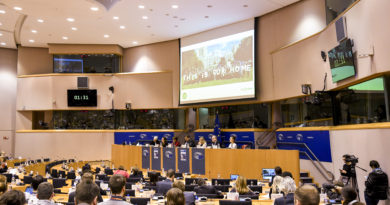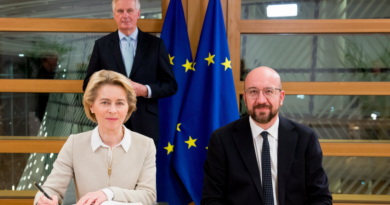UK election and Brexit: what happens next
Boris Johnson’s Conservative Party was the clear winner of the UK general election, having obtained 365 seats in parliament, against 203 of the Labour Party, 48 of the Scottish National Party, 11 of the Liberal Democrats and one of the Greens.
The Tories promised to “get Brexit done” and with a solid majority, it is now almost certain that the withdrawal agreement negotiated with the EU will be approved and the UK will leave the European Union on 31 January 2020. But what needs to happen before and after that date?
The withdrawal agreement
Before Brexit, the UK parliament has to pass the UK withdrawal agreement bill, a law that ratifies the deal negotiated with the European Union and implements it in national legislation. The bill also turns into domestic law the deals negotiated with the EFTA countries (Norway, Iceland and Liechtenstein) and Switzerland. This procedure is expected to start on Friday 20 December.
Once the UK parliament has passed the bill and therefore approved the deal, the European parliament has to vote on the agreement too. This vote is expected to take place in January.
The UK can then leave the EU in an “orderly way” on 31 January 2020.
The withdrawal agreement is an international treaty setting out the terms of the UK exit from the bloc, including the rights of EU nationals in the UK and Britons in the EU. It won’t be re-opened in the future.
The transition period
The deal provides for a transition period after Brexit. This is meant to allow businesses and citizens to adjust to new rules, while a new trade relationship is negotiated between the UK and the EU.
The transition period will last until 31 December 2020 and can be extended until 2022, but the UK government has already said it does not intend to push it beyond 2020.
During the transition, the UK will no longer be a member of the European Union: British citizens will lose EU citizenship, their members of the European parliament and the right to organise European Citizens’ Initiatives (petitions asking the European Commission to propose legislation). Some EU countries (e.g. Germany) will continue to treat British nationals as EU citizens during the transition for the purpose of obtaining citizenship.
At the same time, EU rules, including free movement of people, will continue to apply in the UK. The withdrawal agreement covers the rights of EU nationals who have moved to the UK and British nationals who have moved to the EU, and their family members, before the end of the transition.
After the transition
By the end of the transition, the UK and the EU should have negotiated new trade arrangements. Depending on the level of ambition, these might address some of the rights that have not been covered in the withdrawal agreement, such as free movement of UK citizens already living in the EU or future family reunions for EU nationals in the UK.
The new trade agreement will have to be ratified by all national parliaments across Europe.
If there is no deal by the end of the transition, the UK will start trading with the EU under the terms of the World Trade Organization. But the withdrawal agreement will still be in place to protect the rights of the people who have moved across the UK border before then.
It is essential, however, that all affected apply for settled status (if they are EU nationals or family members of EU nationals in the UK), or for the local residence card (if they are UK nationals or family members of UK nationals in the EU).
In any event, new rules will apply for people moving between the UK and the EU after the transition.
In the UK, the Tories plan to introduce an Australian-style points based system with bespoke visa schemes for people who fill shortages in the National Health Service, for start-ups and for students who stay to work after their studies.
For Britons moving to the EU, a mix of domestic and EU rules on ‘third-country’ nationals will apply. However, the new arrangements will be part of the future negotiations, so the situation is still uncertain.
Dialogue, in the meantime, will continue. Terry Reintke, a Green MEP from Germany, proposed to set up a UK friendship group at the European parliament which should also “listen to the concerns of the millions of EU citizens in the UK and UK citizens in the EU.”
To stay up to date, sign up to our newsletter here.
Claudia Delpero all rights reserved.
Image by Andreas Göllner from Pixabay.
Europe Street News is an online magazine covering citizens’ rights in Europe. We are fully independent and we are committed to providing factual, accurate and reliable information. Our recent survey has shown that about two thirds of the people impacted by Brexit lack information about their rights and awareness is generally low for anything related to EU rights. We believe citizens’ rights are at the core of democracy and information about these topics should be accessible to all. This is why our website and newsletter are available for free.
Please consider making a contribution so we can continue and expand our coverage.





